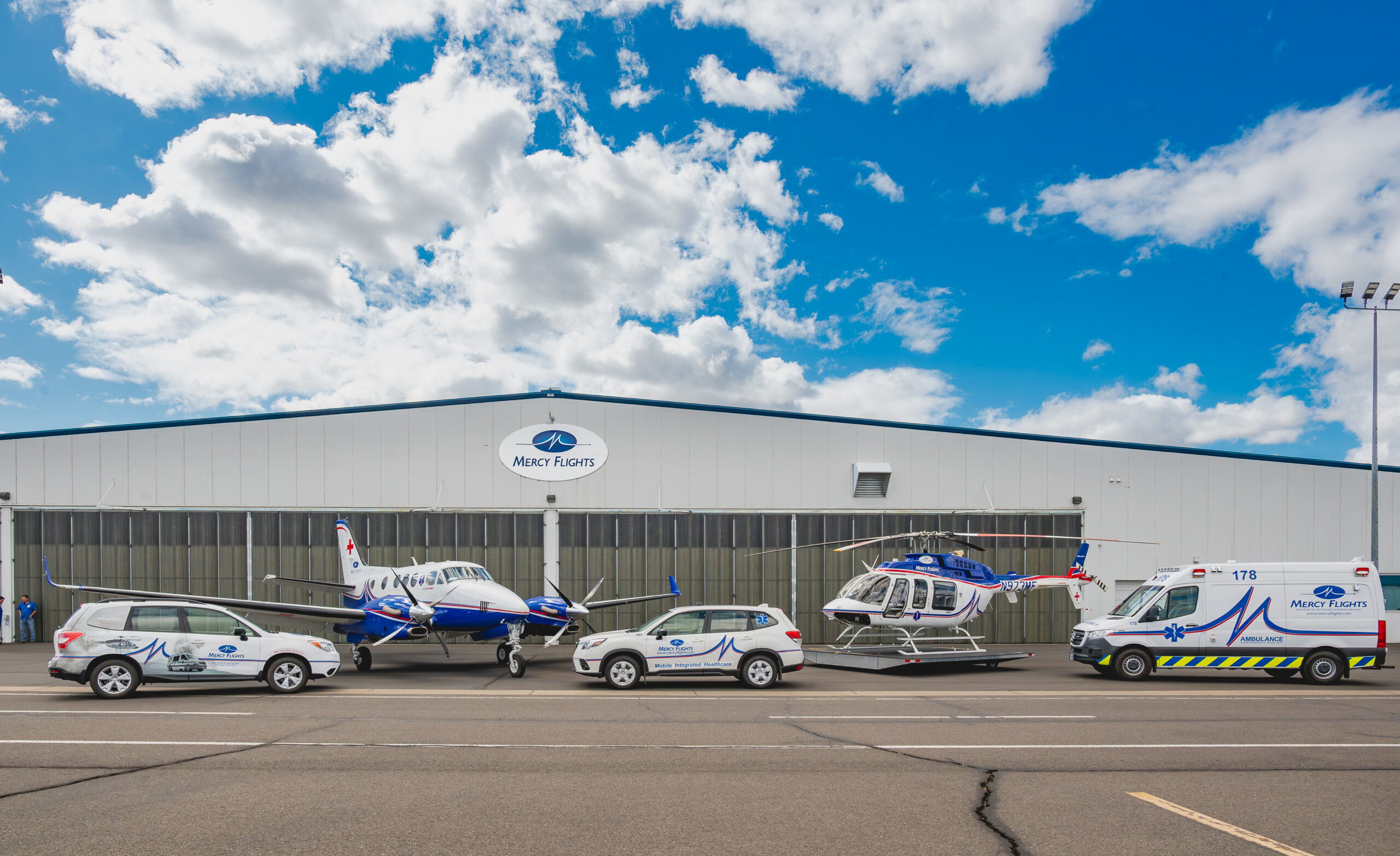Upcoming Membership Rate Changes Effective March 1, 2026
- Air + Ground: $125
- Air Only (California and Oregon): $85
- Lifetime: $2,000
Mercy Flights, Inc. was founded as a non-profit organization in 1949 by George Milligan and was the first civil air ambulance in the U.S. Milligan, an air traffic controller and pilot in Medford, established Mercy Flights after a friend of his died of polio in S. Oregon, unable to survive the long, slow ground transport to Portland. Over the years, Mercy Flights added ground medical transport services and in 2016 became one of the first Mobile Integrated Healthcare (MIH) providers in Oregon. The MIH program brings healthcare and social services directly to patients where they reside.
In 2024 Mercy Flights celebrates 75 years in the healthcare industry, providing innovative mobile healthcare to our neighbors in Southern Oregon and Northern California.
Saving & enhancing lives by delivering vital integrated mobile healthcare in the sky and valleys below.
Revolutionizing the nation’s integration of mobile healthcare for all.

Aircraft and ambulances may be the tools we use to save lives, but our people are the true lifeline of Mercy Flights Inc. From the office, dispatch and mechanical experts who keep us running smoothly, to our flight, ground and medical crews on the front line, every team member plays a critical role. Together we care for families, friends and neighbors to build safer, healthier Southern Oregon and Northern California communities.
We rescue neighbors in crisis and deliver them safely to our hospital partners. We engage with other first responders and lawmakers to ensure that the needs of residents come first.